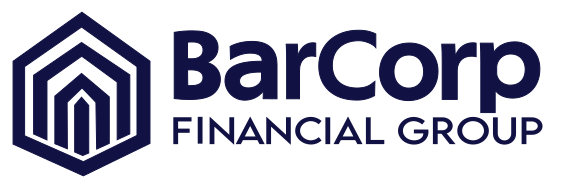Foreign National Refinance Loan
What is a Foreign National Refinance?
A foreign national refinance is when a non-U.S. citizen without permanent residency adjusts their existing mortgage on a U.S. property. This can lead to better loan terms, such as lower interest rates and improved payment conditions, helping them manage or invest in their property more effectively.
4

Benefits of Foreign National Refinance
Refinancing as a foreign national in the U.S. offers substantial benefits, such as the opportunity to secure lower interest rates, which can reduce monthly payments and overall loan costs. It also allows for accessing home equity to fund other investments or expenses, consolidating debts under more favorable terms, and switching from an adjustable-rate to a fixed-rate mortgage for payment stability.
Why BarCorp is the Best Option for Foreign National Refinance?
Barcorp Financial Group excels in foreign national refinancing due to its specialized expertise, competitive rates, customized loan options, streamlined processes, and exceptional service, making it an ideal partner for international borrowers in the U.S. real estate market.
Required Documents for Foreign National Refinance
- Passport: A valid passport to verify identity and nationality.
- Visa or Other Immigration Documents: Proof of legal entry and stay in the U.S., such as a visa or residency documents.
- Proof of Income: Documents like pay stubs, bank statements, or tax returns that show stable income. For self-employed individuals, additional documentation may be required.
- Credit History: While foreign nationals may not have a U.S. credit score, any existing U.S. credit history or an international credit report or credit reference from country of origin can be helpful.
- Property Documentation: Current mortgage statements and property tax receipts to confirm property ownership and status of existing mortgage.
- Bank Statements: Typically, the last two to three months of bank statements to demonstrate financial stability.
- Asset Documentation: Proof of assets held, both domestically and internationally.
- Employment Verification: A letter from your employer stating your position, salary, and length of employment. If self-employed, business registration and financial statements might be required.
Benefits and Advantages
Lower Interest Rate
Reduces the overall cost of the mortgage, saving money over the loan term.
Reduced Monthly Payments
Eases the financial burden, allowing for better budget management.
Access to Equity
Provides liquidity by allowing access to cash through home equity.
Debt Consolidation
Combines multiple debts into a single payment with a lower interest rate.
Switching from ARM to Fixed-Rate
Offers payment stability against interest rate fluctuations.
Extended Amortization Options
Lowers monthly payments by extending the loan term.
Improved Loan Features
Potentially removes prepayment penalties and adjusts loan-to-value ratios.
Questions and Answers
1) What exactly does refinancing a foreign national loan involve?
Refinancing a foreign national loan involves replacing your existing mortgage on a U.S. property with a new loan that potentially offers better terms and rates suitable for non-resident borrowers.
2) Why should I consider refinancing my mortgage as a foreign national?
Refinancing can provide lower interest rates, reduced monthly payments, access to equity, and the opportunity to switch from an adjustable-rate to a fixed-rate mortgage.
3) What documents are required to refinance as a foreign national?
Necessary documents include your passport, visa, proof of income, property documents, recent bank statements, and any available U.S. or international credit history.
4) Can I refinance if I don’t have a U.S. credit history?
Yes, lenders like Barcorp Financial Group can accommodate foreign nationals using international credit reports or alternative documentation.
5) Which lenders specialize in foreign national refinances?
Some lenders focus specifically on foreign national loans; working with a specialized broker like Barcorp can help identify the best options.
6) How do I secure the best interest rates for my refinance?
7) What are the potential risks of refinancing as a foreign national?
Risks include exchange rate fluctuations impacting payments and possible penalties from existing loan terms.
8) Is it possible to convert an adjustable-rate mortgage to a fixed-rate during refinancing?
Yes, refinancing offers the chance to switch to a fixed-rate mortgage, which can provide greater financial stability.
9) What is the typical duration for the refinancing process for foreign nationals?
The process can vary but generally takes about 30 to 45 days depending on the lender and your documentation.
10) Why choose Barcorp Financial Group for my foreign national refinance?
Barcorp stands out for its expertise with foreign nationals, competitive rates, custom loan options, and comprehensive support throughout the refinancing process.
Have any Questions…
We’re here to help!
